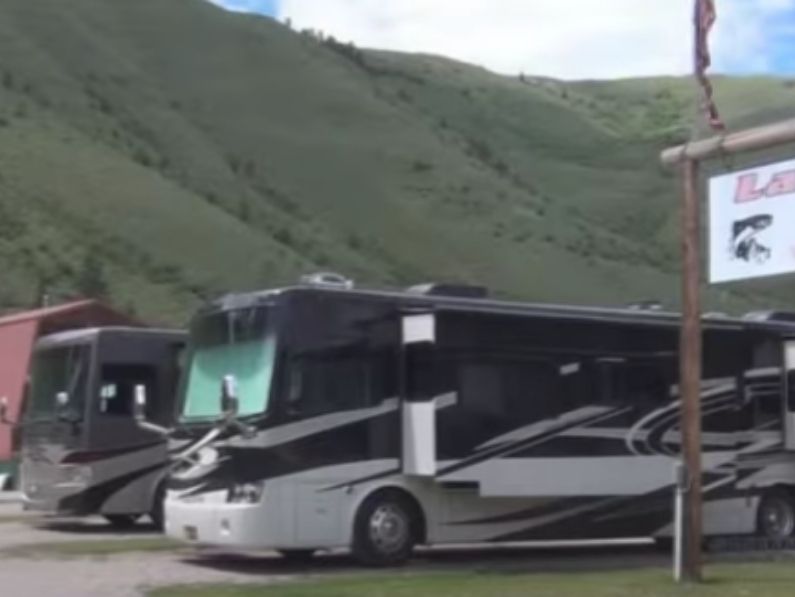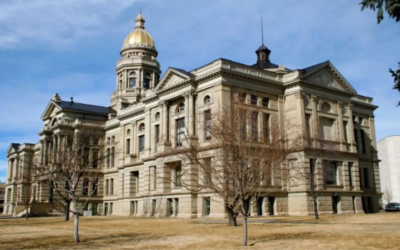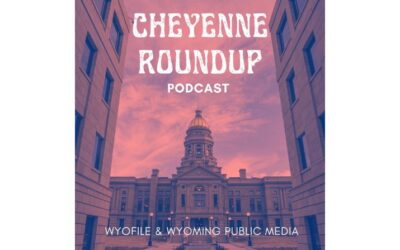Residents of the Hoback RV Park are facing eviction in the next 30 days. They received a notice via email that their septic system does not comply with county regulations, and that a new system with a much smaller capacity is being installed. The RV park residents want temporary policy changes to get more time in their homes, but it’s unclear if they’ll be able to stay beyond the end of the month.
This story illuminates critical issues afflicting the valley: housing insecurity, water quality problems, and wealth inequality. Clare Stumpf, Coordinator at the housing advocacy organization Shelter JH, discussed the state of homelessness in the valley, as well as the potential solutions for the Hoback RV Park residents facing eviction.
Stumpf: So I think maybe one of the silver linings of this situation is that people are finally starting to understand how dire the situation is at Hoback. And the situation is terrible. And there needs to be a short term solution for these people because the reality of the situation is a lot of these people are elderly, disabled, and low income. And the concept of moving their old trailers off the frozen ground in 30 days and relocating is just impossible.

Walkey: Is it safe for them, or would it be safe for them, to stay for the winter?
Stumpf: If there’s a way to just kind of put a Band-Aid on it until May. I’m not trying to discount the severity of the water quality issues in Hoback at all. But nobody wants to be evicted in the middle of winter and nobody wants to be responsible for these 18 families going through this process. So, yes, if there’s a way to kind of sidestep that, at least temporarily for the next six months.
Walkey: If some sort of solution isn’t able to be reached, or even if there is, how will this situation affect the homelessness issue that’s currently in Jackson?
Stumpf: So unfortunately, evictions are happening all the time. This situation is especially dire because it’s a whole subset of our community that’s being forced out of this park at once. But this entire season people have been evicted from their homes because landlords can make more money off of folks who are moving here from cities or, you know, rising taxes, things like that. So it’s just unfortunate. Let’s say, best case scenario, these folks can stay where they are until the end of May. They’re going to have to go somewhere in May. And so we do have time to kind of brainstorm and figure out where that could happen and how that could be facilitated. But zooming out even more, I mean, this situation is going to keep on repeating itself if we don’t fix the water quality problems in Hoback. And everybody is going to get evicted or it’s just going to become totally unlivable. So in the long term, that’s another thing that I’m really concerned about.
Walkey: This story has obviously gotten attention in the valley, but, like you said, there are evictions all the time. And I’m just wondering, from your perspective, what does this particular story with the Hoback RV Park show in terms of homelessness and the housing issues that are prevalent?
Stumpf: I think it shows how, you know, people are just getting squeezed out slowly but surely. And hypothetically if there was affordable housing available in the valley, this situation wouldn’t be such a problem. At least, you know, these people could move into affordable housing temporarily for the winter and then figure out what to do with their trailers in the spring. There could be any number of solutions if there were housing units available, but unfortunately, that’s pretty impossible unless you go out of the valley. So I think it just kind of shows how people are kind of hanging on by a thread. And all it takes is one text from your landlord and then there you are trying to figure out how you’re going to pry your frozen trailer off the ground in 30 days. So I think a lot of renters and people who are, in general, housing-insecure kind of feel this low-level underlying stress on a daily basis.
Walkey: What does homelessness look like in Jackson?
Stumpf: Homelessness isn’t just about physically not having a home. I mean, we know that our national forest lands saw an unprecedented number of campers this summer. We know all of those things. But I think it’s also about people who are living three families to an apartment. Or people who, like these folks, are being forced out of where they’re living right now. So I think of it personally as more broad than physically, you know, having to live on the street, because we all know Jackson’s too cold to do that in the winter. But in the summer, I think there’s definitely a lot of people camping in national forests. I live in my van in a parking lot. And then there’s just people who are forced into unsafe, unsanitary, insecure situations in the winter or year round.
Walkey: Why is this such an invisible issue given that it affects so many people?
Stumpf: I think part of it is that folks just don’t know what to do about it. And I think a lot of times with these huge systemic problems it can be really overwhelming to figure out, you know, how to be an agent of change. And that’s what we are really trying to do at Shelter, is build community support for policies and for candidates and folks who are going to hold public office to make these changes that support homes for all. I think another big problem is that, you know, there is a lot of wealth in this county and with the lack of income tax and with the fact that the seventh penny didn’t pass, there just aren’t a lot of resources that are being shoveled into social service groups. I mean, unfortunately, a lot of wealthy people who come to this valley donate to conservation and arts organizations—and that’s great because those organizations need funding too. But in terms of really addressing the systemic social problems that we have, unfortunately, there’s just not a lot of funding for that. But I’m really hopeful about the Hoback RV Park residents’ situation. I do think that there are the resources available in our community to make sure that they can make the water safer and, hopefully, even better, to find a place for them to go stay so they can continue to contribute to where we live.
Hoback RV Park residents are circulating an online petition asking to extend their leases until May 31. Over 1,000 people have signed it.





